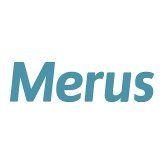预约演示
更新于:2026-02-27
ONO-4685
更新于:2026-02-27
概要
基本信息
原研机构 |
非在研机构- |
最高研发阶段临床1期 |
首次获批日期- |
最高研发阶段(中国)- |
特殊审评- |
登录后查看时间轴
结构/序列
Sequence Code 43197L

来源: *****
Sequence Code 928293967H

来源: *****
Sequence Code 928293970H

来源: *****
关联
5
项与 ONO-4685 相关的临床试验NCT06547528
An Open-label, Uncontrolled, Phase I Dose Escalation Study to Investigate the Tolerability and Safety of ONO-4685 Given as Monotherapy in Patients With Relapsed or Refractory T Cell Lymphoma and Chronic Lymphocytic Leukemia/Small Lymphocytic Lymphoma (CLL/SLL)
A Phase I Study to Investigate the Tolerability and Safety of ONO-4685 Given as Monotherapy in T Cell Lymphoma and CLL/SLL
开始日期2023-10-01 |
申办/合作机构 |
JPRN-jRCT2071220081
ONO-4685-04:ONO-4685 Phase 1 study Single intravenous continuous infusion and subcutaneous administration study in Japanese healthy adult male subjects
开始日期2023-01-17 |
申办/合作机构- |
NCT05332704
A Randomised, Multi-centre, Double-blind, Placebo-controlled, Single Ascending Dose, Multiple Dose Study to Assess Safety, Tolerability, PK, PD & Preliminary Efficacy of IV Doses of ONO-4685 in Patients With Plaque Psoriasis
This is an early phase study to assess the safety and tolerability of ONO-4685 in patients with psoriasis. In addition, the study will assess how the drug is distributed and eliminated by the body (pharmacokinetics) and how the drug affects the body (pharmacodynamics). This will be done by measuring the amount of drug in the blood and measuring other markers in the body that might have been affected by ONO-4685. The study will also look at preliminary information on whether ONO-4685 might be effective in treating psoriasis.
The study will be split into three parts. Part A will assess a single dose of ONO-4685 in small groups of patients, each group planned to receive a higher dose than the last group. In Part B and C, patients will receive multiple doses of ONO-4685 over a period of 4 weeks.
The study will be split into three parts. Part A will assess a single dose of ONO-4685 in small groups of patients, each group planned to receive a higher dose than the last group. In Part B and C, patients will receive multiple doses of ONO-4685 over a period of 4 weeks.
开始日期2022-03-25 |
申办/合作机构 |
100 项与 ONO-4685 相关的临床结果
登录后查看更多信息
100 项与 ONO-4685 相关的转化医学
登录后查看更多信息
100 项与 ONO-4685 相关的专利(医药)
登录后查看更多信息
4
项与 ONO-4685 相关的新闻(医药)2025-10-26
·蒜哥说
一、背景
2025年10月诺贝尔生理&医学奖颁发给拉姆斯戴尔、布伦科和坂口志文,表彰在外周免疫耐受方面的杰出研究,至此免疫检查点抑制剂(ICI)的CTLA-4靶点也获诺奖光环,但同为ICI的PD-(L)1抑制剂代表药物帕博珠单抗(K药)已然登顶并保有药王地位2年,O 药(12),I 药(37)和T药(43)也进入24 年药品销售榜单Top50,该靶点药物的现有市场规模超500 亿美元。面对该类药物专利即将到期,如何再拥有一个新的药王,是所有曾经“药王”企业如艾伯维(阿达木单抗)、未来药王如诺和诺德(司美格鲁肽)等,进行积极战略布局。但是在“药王”的大旗下,如何分得更多的市场,却是最经济实惠的。最简单的方式莫过于药物优化和靶点升级,从静脉注射到皮下再到口服药物,从单抗到双抗、三抗,再到ADC,而无论怎样的模仿(me too)和升级(me better,me first),通常都难以再造药王。但是生物技术在制药领域的发展和成熟,却给新兴的生物制药企业带来了巨大的想象空 间,也为疾病的诊疗带来了更好的方案,让更多普通大众也可以从技术发展更替中获益。
二、PD-(L)1在研药物进展
将生物类似物除外,目前市场上已经获批 PD-(L)1靶点药物至少有 23 个,其中有双抗类药物如依沃西单抗(EGFR)和卡度尼利单抗(CTLA-4),也有抗体类复合制剂如艾托组合齐倍安(CTLA-4),也有联合用药适应症如 O 药和 Y 药组合等等。
目前,根据网络公开资料,进入临床阶段的 PD-(L)1 大部分为联合靶点,热门靶点涉及 VEGF、TGFβR2、CTLA-4、4-1BB、IL2、IL15、IL21、IL12、IL8、TIM3、TIGIT、TROP2、 整合素(α4β7,α Vβ6)、CCR8 、CD3 、CD19、CD40 、CD47、CD28 、HER2 、ICOS 、 ILT4、OX40、PLGF 等 25 个,还有 PD-L1ADC,小分子药物、PD-(L)1 激动剂等研发方向。
正在申报上市和开展三期临床的联合靶点主要有默沙东复合制剂K药+MK-4280(LAG3)、K药+MK7684(TIGIT)、恒瑞瑞拉夫普α注射液(双功能融合蛋白TGFβ)、正 大天晴TQB2826(双功能融合蛋白TGFβ)、信达/武田IBI363(IL2Rα融合蛋白)、华海(华奥泰)HB0025(VEGF融合蛋白)、三生国健/辉瑞SSGJ707(VEGF)、BioNTech(普米斯)/BMS BNT327(VEGFA)、康宁杰瑞伊瑞普利单抗(CTLA-4)、AZ/辉瑞沃苏米单抗(CTLA-4)、BMS复合制剂O药+瑞拉利单抗(LAG3),默克/GSK 三期数据失败的M7824(TGFβ)。因此未来即将可能进入市场的联合靶点主要为CTLA-4(已有获批药物上市)、VEGF(已有获批药物上市)、TGFβ、LAG3、TIGIT、IL2 等6 个,而辉瑞的PD-L1 靶点ADC,Curis小分子药物CA170/AUPM170也进入三期临床(表2),为该靶点提供了全新的药物类型。
在临床2期的新增靶点主要是维立志博LBL-024(PD-L1+4-1BB)、翰思艾泰HX009(CD47)、康宁杰锐JSKN003(HER2+PD-L1 ,ADC,纳入突破疗法)、再极医药MAX80391(核素偶联,诊断治疗)、罗氏7769(TIM3)、艾伯维ABBV-1882(α4β7),也有I药O药组合双特异性抗体如信达/礼来IBI318(2期终止)和三生国健SSGJ-706(PD-L1)。在临床2期阶段,礼来、强生和Anaptys的PD-1 激动剂,为该靶点在非肿瘤疾病治疗方向提供了新的探索和全新生命力。
表 3 进入二期的 PD-(L)1 靶点药物
在临床 1 期有进展的品种中,不仅新增了12 个靶点如小野制药的ONO-4685(CD3)、祐和/百奥赛图YH008(CD40)、轩竹康明KM602(CD28 三特异性抗体)、上海细胞治疗集团BZE2209(MSLN,CAR-T)、天科雅TC-E202(CAR-T)、Xencor的XmAb23104(ICOS)、亦诺微的MVR-T3011(IL12,溶瘤毒)、石药JMT108,盛禾生物IAP0971,百奥泰BAT7205和奥赛康ASKG915 等(IL15,融合蛋白)、百济/安进的AMG256(IL21,融合蛋白)、博奥信BSI-585(ILT4)、科霸SPX303(LILRB2)、上海细胞治疗集团BZD1901(MSLN,CAR-T)、信达IBI3014(Trop2+PD-L1,ADC)、康宁杰瑞JSKN022(αVβ6+PD-L1,ADC),同时CAR-T,溶瘤毒疗法也进入 1 期临床,但是 CAR-T 高额成本是否能带来更高的临床获益,未来的临床数据值得关注。
表 4 进入一期的 PD-(L)1 靶点药物
临床前研究已知的新增靶点中有创胜 TST878(Gremlin) 、Panolos 的 PB203(PLGF) 、圆 祥的 AP201(OX40)、康源 BP2402(IL8)、泽璟的 WO2025140619(CCR8) 。临床前研究进入临床并上市比例通常较低,即使上市成功,未来也将面临 1-3 期已上市药物的市场压力,如果没有实质性创新和明显的临床获益,在实现商业成功的道路上必然无比曲折。
表 5 临床前研究阶段的 PD-(L)1 靶点药物
总结
2014 年是肿瘤免疫治疗史上必然被铭记的里程碑,BMS的O药7月在日本获批上市,随后默沙东的K药同年9月在美国获批上市,以及之后的阿斯利康I药和罗氏的T药相继进入市场,为肿瘤的治疗开创了新的局面,使千万肿瘤患者的生命有质量的延长。虽然BMS和小野的欧洲和美国专利,使得默沙东、阿斯利康和罗氏败诉赔偿,但在PD-(L)1靶点下,涌现出的新靶点组合治疗、双功能融合蛋白、双抗、三抗、ADC 、溶瘤毒、CAR-T 、口服小分子等新形式的药物,以及激动剂研究,未来也必将使更多患者获益,并涌现出新的继承者, 为疾病的诊疗带来黎明。
以上资料根据网络公开资料整理,难免有错漏,敬请各位见谅!
临床3期抗体药物偶联物专利到期免疫疗法生物类似药
2025-09-29
Genmab plans to buy Merus for $8 billion in cash to get a head and neck cancer drug that might make it onto the market in 2027.
By scooping up the Dutch biotech, Copenhagen-based Genmab is gaining access to a bispecific antibody that reached a “
home run scenario
” in Phase 2 results presented at the American Society of Clinical Oncology confab in May, Jefferies analysts said at the time.
Genmab
said
Monday it would pay $97 per share
$MRUS
to get Merus, with the deal anticipated to close early in the first quarter of 2026.
Genmab’s shares
$GMAB
were down 3% before the opening bell. Merus’ stock, meanwhile, jumped 38% in premarket Nasdaq trading to nearly match the buyout price.
The move comes two weeks after Genmab
culled an early-stage asset
from its
first-ever acquisition
, the $1.8 billion deal for antibody-drug conjugate startup ProfoundBio in 2024.
Now, via the industry’s fourth-largest biopharma acquisition so far this year, Genmab could become a global leader in the head and neck cancer fight and accelerate past rivals like Bicara Therapeutics.
But there is risk involved. Merus’ petosemtamab, an EGFRxLGR5 antibody, is still in Phase 3 testing and has not yet presented those late-stage results.
Interim topline data from one or both Phase 3 studies, in first- and second or third-line head and neck cancer, aren’t anticipated until next year, Genmab said.
“We think that the timing is perfect here,” Genmab CEO Jan van de Winkel said on an analyst call. “We went through 56,000 files in due diligence, and we are very, very confident that this is a potential game-changing, potentially transformational bispecific antibody.”
Genmab said the drug could reach blockbuster status sales by 2029 and multibillion dollars in annual revenue further down the line.
The
Epkinly
maker said it could have four in-house programs land “multiple new drug launches by 2027.” That includes
Rina-S
, the lead ADC from the ProfoundBio deal, according to a
presentation
on Monday. The drug is in
Phase 3
testing in ovarian cancer, and Genmab predicts at least $2 billion in peak annual sales from the drug.
“We believe Genmab has the right vision and experience to advance petosemtamab in recurrent/metastatic head and neck cancer and beyond,” Merus CEO Bill Lundberg said in a press release.
Merus had $892 million in cash and equivalents, which was expected to take the company into 2028, it said in an August corporate
presentation
.
Merus nabbed an accelerated approval for its NRG1+ cancer drug
Bizengri
last December, but the medicine is licensed to Partner Therapeutics, which markets the treatment in the US.
Genmab did not mention Merus’ other clinical-stage asset, an EGFRxc-MET bispecific codenamed MCLA-129. Most biopharma M&A deals are valued around a lead or single asset,
industry insiders have said
.
Merus also has potential to receive royalties on candidates in development with partners.
Incyte
is working on a PD-1xTGFβR2 bispecific dubbed INCA33890, and Ono Pharmaceutical is testing a PD-1xCD3 bispecific named ONO-4685.
On the day of the ProfoundBio deal, van de Winkel
told
Endpoints News
that Genmab likely wouldn’t do another major acquisition shortly after inking its first.
“There’s a lot to digest. If you asked me if Genmab is ready to do another deal of this size very quickly, the answer is no,” the Genmab CEO told Endpoints in April 2024.
Now, the veteran antibody maker is delving further into bispecifics with Merus’ so-called Biclonics antibodies. Bispecifics have become a go-to approach for cancer drug developers in recent years, with the regulatory clearance of multiple medicines drumming up dealmaking interest. Merus had secured platform collaborations with
Eli Lilly
,
Gilead
, Biohaven and others over the years.
Editor’s note: This story was updated to include a comment from Genmab’s analyst call about the deal.

ASCO会议临床3期上市批准并购加速审批
2023-03-24
近些年,组合创新成为一种趋势,基于成熟靶点疗法进行组合,应用新的治疗模式,能够在一定程度上提高成功率,降低研发风险。
PD-1是免疫治疗领域最为成功的靶点之一,其代表药物Keytruda,在2022年的销售额达到200亿美元,获批适应症横跨近30个癌种。不少企业布局PD-1多靶点药物,期望能够站在巨人的肩膀上,实现“1+1>2”。下文将对PD-1多靶点药物进行分析。
竞争格局
根据智慧芽新药情报库数据统计,当前共有126个PD-1多靶点药物,涉及46种靶点组合。
共有54%的靶点组合药物进入临床阶段,进展最快的靶点组合是PD-1 × CTLA-4 和 PD-1 × LAG-3,均已有药物获批上市。
从研发药物数量来看,PD-1 × PD-L1排名第一,研发药物达到17个。85%的靶点组合研发药物少于5个,竞争程度较低。
从药物类型看,以双特异性抗体药物为主,占比为54%。
靶点组合
1. 共刺激分子
共刺激分子在免疫反应中负责向免疫细胞传递第二信号,可分为正性共刺激分子和负性共刺激分子。正性共刺激因子促进免疫细胞的增殖分化,加强免疫反应。负性共刺激因子抑制免疫细胞的增殖分化,减弱免疫反应。
2. 细胞因子
细胞因子是由免疫原或其他因子刺激免疫细胞和其他细胞所产生并分泌的低分子量可溶性蛋白,具有调节机体免疫和非免疫系统发育与功能的作用。
趋化因子可使细胞定向迁移,在肿瘤组织中,一方面有利于肿瘤细胞的转移,另一方面肿瘤组织会区域选择性分泌趋化因子,使得免疫细胞迁移到肿瘤细胞较少的区域,发挥促肿瘤的作用。
生长因子可促进细胞的生长分化和血管生成等,有利于肿瘤细胞的增殖和侵袭。白介素主要调节免疫细胞功能,抑制或激活免疫反应。
集落刺激因子主要参与造血调控,能够刺激多能造血干细胞和造血祖细胞增殖分化,发挥免疫激活作用。
细胞因子作用范围较广,单独使用有系统毒性,通过融合蛋白的形式,利用PD-1抗体的靶向作用,可主要作用于肿瘤组织,同时也能发挥协同免疫作用。
部分药物为溶瘤病毒,携带细胞因子基因和PD-1抗体基因,可以在裂解肿瘤细胞后,加强免疫反应。
3. 肿瘤相关抗原
肿瘤相关抗原是指既存在于肿瘤组织或细胞,也存在于正常组织或细胞的抗原物质,只是在肿瘤细胞的表达量远超过正常细胞。
利用肿瘤相关抗原,增加对特定癌种的靶向性,通过抑制PD-1,增加免疫反应,有利于治疗特定癌种。
4. 其他
临床药物
1. PD-1 × PD-L1
信达的Reozalimab进展最快,目前处于临床2期,适应症为鳞状细胞癌和结外NK-T细胞淋巴瘤。
Reozalimab是重组全人源化IgG1抗体,PD-1抗体部分为LY3342903,PD-L1抗体部分为LY3300054,FC端沉默。
2020年ASCO报道了其临床1a期(NCT03875157)的试验结果[1],如下所示。Reozalimab安全性良好,展现出了一定的疗效。
2. PD-1 × LAG-3
BMS的Nivolumab/Relatlimab进展最快,2022年FDA和EMA批准上市,用于治疗黑色素瘤。
Nivolumab/Relatlimab为PD-1单抗和LAG-3单抗的复方药物(240 mg nivolumab + 80 mg Relatlimab),其中Nivolumab已上市,Relatlimab目前仍处于临床3期研究中。
RELATIVITY-047(NCT03470922)的临床结果是获批的基础,结果如下。其主要终点mPFS为10.1个月(Nivolumab/Relatlimab) vs 4.6 个月(Nivolumab),HR为0.75。
3. PD-1 × CLTA-4
康方生物的Cadonilimab进展最快,2022年NMPA附条件批准其上市,用于治疗宫颈癌。
NMPA批准是基于AK104-201研究,结果如下,主要终点ORR为31%。
4. PD-1 × TIM-3
罗氏的RO-7121661进展最快,目前正在进行食管鳞状细胞癌和食管癌的2期临床试验。
RO-7121661为靶点PD-1和TIM-3的双特异性抗体,对PD-1亲和力高于TIM-3(KD 250 pM vs 130 nM),Fab使用了Crossmab技术,Fc使用了KiH技术和PG-LALA突变。
2020年,AACR公布了RO-7121661的临床前数据,在huPD-1/huTIM-3转基因C57/BL6小鼠中相比PD-1单抗,更好地抑制MC38肿瘤细胞的生长[3]。
5. PD-1 × TIGIT
默克的MK-7684A进展最快,目前正在进行非小细胞肺癌/小细胞肺癌的3期临床试验。
MK-7684A为Pembrolizumab+Vibostolimab复方疗法,Pembrolizumab已上市,Vibostolimab还处于三期临床中。
2020年,ESMO报道了1期临床结果,数据如下。MK-7684A针对未使用过抗PD-1/PD-L1疗法的非小细胞肺癌患者效果较好,针对使用抗PD-1/PD-L1疗法后复发性非小细胞肺癌患者欠佳[4-5]。
6. PD-1× VEGF
康方生物Ivonescimab的进展最快,正在进行非小细胞肺癌/非鳞非小细胞肺癌的3期临床试验。
Ivonescimab为四价双特异性抗体,对PD-1和VEGF的亲和力与贝伐珠单抗和纳武利尤单抗相当。
2022年,ASCO公布了NCT04900363(临床1/2期)和NCT04736823(临床2期)的试验结果[6]。
NCT04900363结果显示AK112在晚期非小细胞肺癌患者中耐受性良好,具有显著的抗肿瘤效果,30mg/kg Q3W组ORR和DCR均达到100%。
NCT04736823结果显示AK112联用化疗具有较好的抗肿瘤效果。
7. PD-1 × TGF-β
君实的JS201进展最快,目前正处于2期临床中,适应症为小细胞肺癌。
JS201由完整PD-1抗体(特瑞普利单抗)与TGF-BRII ECD连接而成[7]。
8. PD-1× HER2
韩美和信达联合开发的Fidasimtamab进展最快,正在进行胃癌/胃食管交界癌的1/2期临床试验。
Fidasimtamab是使用韩美的PENTAMBODY的平台开发的双抗[8]。
2021年,CSCO报道了Fidasimtamab的1a期临床试验结果(NCT04162327)[9]。试验中未观察到DLT,也未达到MTD。疗效方面,15名受试者(剂量≥1mg/kg)的ORR为20%。
9. PD-1 × IL-12R
亦诺微的MVR-T3011进展最快,目前正在进行肝癌/非小细胞肺癌的2期临床试验
MVR-T3011是一种溶瘤病毒疗法,基于HSV-I型疱疹病毒骨架,增加两个外源基因PD-1抗体Fab和IL-12,在裂解肿瘤细胞的同时,促进肿瘤微环境的免疫反应。
目前MVR-T3011以静脉注射(IV)和瘤内注射(IT)进行了临床试验。
2021, ASCO报道了MVR-T3011 IT的1/2期临床试验(NCT04370587)结果,在1×10^6 和 1× 10^7 PFU/ml两个剂量下,MVR-T3011耐受性良好,在6个可评估的受试者中,5个最佳反应为SD,展现出了一定的抗肿瘤效果[10]。
2023年2月,亦诺微公开了MVR-T3011 IT的II期临床试验结果。针对晚期黑色素瘤,MVR-T3011的mPFS为12.9个月。针对头颈部鳞癌,MVR- T3011的ORR为25.0%[11]。
MVR-T3011 IV给药也初现疗效,低剂量(1x10^6 PFU)组有1例受试者达到SD[12]。
10. PD-1 × CD47
翰思生物的HX-009进展最快,已进入临床2期,适应症为淋巴瘤。
HX-009由PD-1单抗与SIRPα通过柔性肽片段链接而成。2022年,SITC报道了HX-009的临床前数据,HX-009对PD-1结合力强于CD47,减少对非肿瘤组织的CD47结合[13]。
HX009在多种淋巴瘤模型(包括PDX和CDX等)上的展示出较高抗肿瘤活性,并且远高于其相应的单克隆抗体。
11. PD-1 × E6
天科雅的TC-E202目前进展最快,已进入临床1/2期,用于治疗宫颈癌。
TC-E202属于TCR细胞疗法,在编码HPV16 E6 TCR的同时,编码抗PD-1的单链抗体可变区片段。经病毒转染,T细胞能够表达HPV16 E6 TCR并同时分泌抗PD-1的单链抗体。当TC-E202输入患者体内,经改造的T细胞表面表达的TCR能有效识别宫颈癌肿瘤抗原HPV16 E6。经肿瘤抗原激活的T细胞被激活,能够起到杀伤肿瘤的作用,同时经改造的T细胞还可以分泌PD-1单链抗体,能有效消除肿瘤微环境的抑制,增加T细胞的浸润,增强TC-E202注射液对实体瘤的疗效。
12. PD-1 × IL-15R
AskGene的ASKG-915进展最快,目前正在进行实体瘤的1期临床试验。
ASKG-915是应用smartkine技术制造,由PD-1单抗、Sushi结构域、IL-15蛋白、可裂解连接子和MASK蛋白构成的融合蛋白。在蛋白酶过表达的肿瘤中,ASKG-915的连接子断裂,释放出活性药物。
13. PD-1× CD19
普瑞金的Cytoplasmic Activated PD-1 CAR T Cells进展最快,正在进行B细胞淋巴瘤的1期临床试验。Cytoplasmic Activated PD-1 CAR T Cells是CD19 CAR-T,携带细胞质激活的PD-1。
14. PD-1 × CD3
小野制药的ONO-4685研究进展最快,目前正在进行治疗复发性T细胞淋巴瘤的1期临床试验。
ONO-4685是靶向PD-1和CD3的双特异性抗体。
15. PD-1 × CD40
祐和医药的YH008进展最快,正在进行1期临床,适应症为血液瘤和实体瘤。
YH008是抗PD-1/CD40 Fc沉默的IgG1亚型双特异性抗体,应用了LALA突变。
2022年,AACR报道了临床前数据,YH008在B-hPD-1/CD40小鼠B16F10肿瘤模型中显示出剂量依赖的抗肿瘤活性,该抗体以PD-1依赖的方式激活CD40,促进树突细胞增殖和活化,增加肿瘤浸润CD8+ T细胞/Treg细胞比率[15]。
16. PD-1 × 4-1BB
信达的IBI-319进展最快,正在进行泛癌种的1期临床试验。
IBI-319为全人源化IgG1,Fab为PD-1单抗和4-1BB单抗,FC段沉默。使用的PD-1单抗为信迪利单抗,进行了少量突变(重链上的M54S),减少甲硫氨酸的氧化。使用的4-1BB单抗在重链的CDR区进行了M101A和G106A突变,减少甲硫氨酸氧化和对4-1BB的亲和力。
2021年,信达在Nature Communications发表了IBI-319的临床前数据,在CT26和MC38同基因小鼠肿瘤模型中,IBI319将T细胞的共刺激限制在富含pd -1的微环境中,如肿瘤和肿瘤引流淋巴结,降低由泛化T细胞激活引起的全身(肝脏)毒性[16]。
2022年,ASCO报道了1期临床结果,21名患者中有 15名 (71.4%)出现TRAE。转氨酶(ALT, AST)或胆红素未见药物相关性升高。在14个可评估受试者中,1名(经典霍奇金淋巴瘤)达到PR [17]。
整体来看IBI319耐受性较好,没有出现4-1BB抗体的肝毒性,具有一定的疗效。
17. PD-1 × IL-2R
罗氏的RO-7284755进展最快,目前正在进行实体瘤的1期临床试验
2019年,AACR公布了临床前数据,显示RO-7284755优先结合Teff,相比于单组分,更能有效激活T细胞,抗肿瘤效果更好[18]。
18. PD-1 × MSLN
上海细胞治疗研究院的anti-PD1 MSLN-CAR-T进展最快,目前正在进行1/2临床试验
anti-PD1 MSLN-CAR-T是自分泌PD1纳米抗体间皮素CAR-T细胞。
2022年,ASCO报道了1期临床试验结果,6例可评价的间皮瘤患者,1例获得完全缓解(CR),2例获得部分缓解(PR),ORR为50%;在PDL1+≥5%的间皮瘤患者,3例均获得客观缓解,ORR达到100%[19]。
19. PD-1 × CTLA4 × MSLN
上海细胞治疗研究院的Anti-CTLA-4 and PD-1 CAR-T cell therapy进展最快,处于实体瘤的1期临床(NCT03182803)中。
Anti-CTLA-4 and PD-1 CAR-T cell therapy是表达PD-1和CTLA-4抗体的间皮素CAR-T细胞疗法。
20. PD-1 × ICOS
Xencor的Izuralimab进展最快,正在进行黑色素瘤的1/2期试验
Izuralimab使用ICOS Fab、PD-1 scFv与应用Xtend技术的Fc相连接。Xtend FC是对FC段进行2个氨基酸的改造,可以增加对FCRN的结合,最高可延长3倍半衰期[20]。
2021年,SITC报道了临床前数据,相比于PD-1单抗,Izuralimab激活T细胞效果更好[21]。
2022年,ASCO公布了1期临床试验结果,在15mg/kg下具有良好的耐受性,展示出一定的抗肿瘤效应,有3个受试者(肉瘤/头颈部鳞状细胞癌/肾细胞癌)有PR,2个受试者(结肠直肠癌)SD大于12个月[22]。
21. PD-1 × IL21R
安进的AMG 256进展最快,正在进行1期实体瘤临床试验。
AMG 256是IgG1 PD-1抗体与IL12的融合蛋白。
22. PD-1 × LILBR2
Celldex的BSI-585进展最快,目前正在进行实体瘤的1期临床试验
BSI-585是四价双抗,PD-1 IgG1单抗FC段连接LILBR2单抗的scFv,在FC段进行了一些突变:AQQ突变(L234A, L235Q, K322Q),减少FcyR的结合和效应;YTE突变(M252Y, S254T, T256E),增加对FcRn的亲和力。
2021年,SITC报道了临床前数据,BSI-585能够激活髓细胞和T细胞,在黑色素瘤小鼠中,相比于PD-1单抗和LILBR2单抗抗肿瘤效果更强[23-24]。
23. PD-1 × CCL4 × IL-12 × Flt3L × CTLA4
Oncorus的ONCR-177进展最快,正在进行泛癌种的1期临床试验。
ONCR-177是一种重组HSV-1溶瘤病毒疗法,携带五个免疫调节转基因(IL-12、FLT3L、CCL4、抗PD-1和抗CTLA-4抗体)
2021年STIC报道了1期临床结果,安全性方面良好,没有出现DLT和大于3级的TRAE,疗效较差,8例患者中,1例PR,1例SD,6例PD[25]。
2022年11月30日,Oncorus宣布即将停止1期临床试验[26]。
24.PD-1 × α4β7
艾伯维的ABBV-1882进展最快,目前正在进行治疗HIV感染的1期临床试验
ABBV-1882是ABBV-181 (PD1单抗)和 ABBV-382 (α4β7单抗)的组合疗法,ABBV-181和ABBV-382均未上市,分别处于临床2期和临床1期。
25. PD-1 × IL2RA
信达的IBI363进展最快,正在进行实体瘤/淋巴瘤的1期临床试验。
IBI363为PD-1抗体和IL-2的融合蛋白,其中IL-2主要作用于IL-2Rα,临床前数据显示其能显著激活CD8+T细胞[27]。
参考资料:
[1]https://ascopubs.org/doi/abs/10.1200/JCO.2020.38.15_suppl.3062
[2]https://doi.org/10.1158/1538-7445.AM2020-2270
[3]https://aacrjournals.org/cancerres/article/80/16_Supplement/2270/641809/Abstract-2270-RG7769-PD1-TIM3-a-novel
[4]https://oncologypro.esmo.org/meeting-resources/esmo-virtual-congress-2020/vibostolimab-an-anti-tigit-antibody-as-monotherapy-and-in-combination-with-pembrolizumab-in-anti-pd-1-pd-l1-refractory-nsclc
[5]https://oncologypro.esmo.org/meeting-resources/esmo-virtual-congress-2020/safety-and-efficacy-of-vibostolimab-an-anti-tigit-antibody-plus-pembrolizumab-in-patients-with-anti-pd-1-pd-l1-naive-nsclc
[6]https://ascopubs.org/doi/10.1200/JCO.2022.40.16_suppl.9040
[7]https://junshi-bioscience-v2-umb.azurewebsites.net/media/zisphutm/junshi-biosciences-2020-annual-results-en.pdf
[8]https://www.bjhanmi.com.cn/front/en/rdpipelines.jsp
[9]https://www.prnewswire.com/news-releases/innovent-releases-preliminary-results-of-the-phase-ia-dose-escalation-study-of-ibi315-anti-her2pd-1-bispecific-antibody-in-patients-with-advanced-solid-tumors-at-csco-annual-meeting-2021-301386697.html
[10]https://ascopubs.org/doi/10.1200/JCO.2021.39.15_suppl.2526
[11]https://mp.weixin.qq.com/s/KfBDXvhpWZx2_iRbjhqz9w
[12]https://mp.weixin.qq.com/s/-YtxuzJJch-YIQfGLw0I0Q
[13]http://hanxbio.com/newsinfo/777758.html
[14]https://ask-gene.com/wp-content/uploads/2022/12/915Poster_SITC2022_eposter_Final.pdf
[15]https://aacrjournals.org/cancerres/article/82/12_Supplement/5615/699816/Abstract-5615-YH008-a-PD-1-CD40-bispecific
[16]https://www.nature.com/articles/s41467-021-26645-6
[17]https://meetings.asco.org/abstracts-presentations/210089
[18]https://www.abstractsonline.com/pp8/#!/6812/presentation/2442
[19]https://shcell.com//index.php?m=Home&c=View&a=index&catid=30&id=3856
[20]https://investors.xencor.com/static-files/62cf4444-a659-4b0a-bd13-b615d0d20167
[21]https://investors.xencor.com/static-files/62cf4444-a659-4b0a-bd13-b615d0d20167
[22]https://meetings.asco.org/abstracts-presentations/209993
[23]https://celldex.com/wp-content/uploads/CDX-585-SITC-2021-final-26Oct21.pdf
[24]https://jitc.bmj.com/content/9/Suppl_2/A833
[25]https://www.oncorus.com/wp-content/uploads/2021/11/ONCR-177-SITC-2021-Poster_05Nov2021_FINAL-1.pdf
[26]https://investors.oncorus.com/news-releases/news-release-details/oncorus-announces-portfolio-reprioritization-focus-iv
[27]https://img.innoventbio.com/filenew.pdf

免疫疗法细胞疗法临床研究
100 项与 ONO-4685 相关的药物交易
登录后查看更多信息
研发状态
10 条进展最快的记录, 后查看更多信息
登录
| 适应症 | 最高研发状态 | 国家/地区 | 公司 | 日期 |
|---|---|---|---|---|
| 慢性淋巴细胞白血病 | 临床1期 | 日本 | 2023-10-01 | |
| 小淋巴细胞淋巴瘤 | 临床1期 | 日本 | 2023-10-01 | |
| 斑块状银屑病 | 临床1期 | 摩尔多瓦 | 2022-03-25 | |
| 斑块状银屑病 | 临床1期 | 罗马尼亚 | 2022-03-25 | |
| 斑块状银屑病 | 临床1期 | 英国 | 2022-03-25 | |
| 复发性T细胞淋巴瘤 | 临床1期 | 美国 | 2021-12-10 | |
| 难治性T细胞淋巴瘤 | 临床1期 | 美国 | 2021-12-10 | |
| 自身免疫性疾病 | 临床1期 | 欧盟 | - | |
| 自身免疫性疾病 | 临床1期 | 日本 | - | |
| 银屑病 | 临床1期 | - | - |
登录后查看更多信息
临床结果
临床结果
适应症
分期
评价
查看全部结果
| 研究 | 分期 | 人群特征 | 评价人数 | 分组 | 结果 | 评价 | 发布日期 |
|---|
No Data | |||||||
登录后查看更多信息
转化医学
使用我们的转化医学数据加速您的研究。
登录
或

药物交易
使用我们的药物交易数据加速您的研究。
登录
或

核心专利
使用我们的核心专利数据促进您的研究。
登录
或

临床分析
紧跟全球注册中心的最新临床试验。
登录
或

批准
利用最新的监管批准信息加速您的研究。
登录
或

生物类似药
生物类似药在不同国家/地区的竞争态势。请注意临床1/2期并入临床2期,临床2/3期并入临床3期
登录
或

特殊审评
只需点击几下即可了解关键药物信息。
登录
或

生物医药百科问答
全新生物医药AI Agent 覆盖科研全链路,让突破性发现快人一步
立即开始免费试用!
智慧芽新药情报库是智慧芽专为生命科学人士构建的基于AI的创新药情报平台,助您全方位提升您的研发与决策效率。
立即开始数据试用!
智慧芽新药库数据也通过智慧芽数据服务平台,以API或者数据包形式对外开放,助您更加充分利用智慧芽新药情报信息。
生物序列数据库
生物药研发创新
免费使用
化学结构数据库
小分子化药研发创新
免费使用

